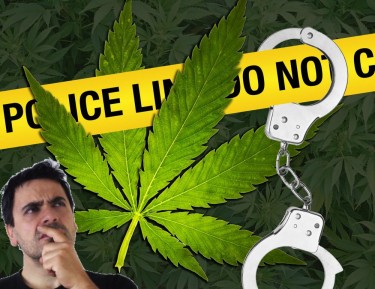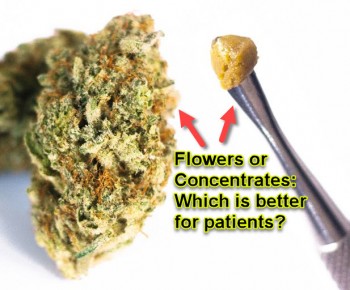
Sometimes the best victories against prohibition come not from grand gestures, but from bureaucratic oversights that slowly unravel the entire system. That's exactly what's happening right now in North Carolina and across the country, where the legalization of hemp has accidentally created one of the most beautiful legal clusterfucks I've ever witnessed.
Picture this: Officer Johnson pulls you over and claims he smells marijuana. In the old days, that was game over – probable cause established, search initiated, life potentially ruined. But now? Now that same officer has to explain to a judge how his magical nose can distinguish between legal hemp and illegal marijuana when even trained laboratory equipment can't make that determination without expensive chemical analysis.
The irony is delicious. When legislators legalized hemp in 2019 to comply with federal law, they thought they were just opening up a new agricultural market. What they actually did was accidentally kneecap one of law enforcement's most reliable tools for harassing cannabis users. The State Bureau of Investigation even warned that "marijuana will be legalized in NC because law enforcement cannot distinguish between hemp and marijuana."
They weren't wrong.
We're now watching a fascinating legal drama unfold in North Carolina's courts, where officers are literally testifying under oath that they can smell the difference between two identical substances. In one case, Officer Jason Cleary told a judge that marijuana has a "very distinct strong smell" while hemp is "not as pungent." Another officer claimed he attended "marijuana spotter school" and could identify marijuana by smell alone.
Experts universally agree this is scientific nonsense. Hemp and marijuana come from the same plant species and smell exactly the same. Even drug dogs can't tell the difference. But here's where it gets interesting – some courts are still allowing these searches to proceed, creating a constitutional crisis where people's Fourth Amendment rights hinge on whether a judge believes in officer superpowers.
This isn't just about legal technicalities. It's about how unintended consequences can sometimes accomplish what decades of activism couldn't: making marijuana prohibition practically unenforceable. Let's dive into how legal hemp accidentally became prohibition's worst nightmare.
Nose Knows Nothing: Scientific Reality vs. Police Fantasy
The foundation of this entire legal mess rests on a simple scientific fact that law enforcement desperately wants to ignore: hemp and marijuana are virtually identical in every way except THC content. They're both Cannabis sativa, they smell the same, they look the same, and short of expensive laboratory analysis, there's absolutely no way to tell them apart.
Yet somehow, North Carolina police officers have convinced themselves – and are trying to convince judges – that they possess superhuman olfactory abilities that can detect the difference between 0.2% THC and 0.4% THC content. It's like claiming you can smell the difference between a beer with 4.9% alcohol and one with 5.1% alcohol. Ridiculous doesn't begin to cover it.
The most absurd example comes from the case of teenager J.B.P., where Officer Jason Cleary testified that marijuana has a "very distinct strong smell" while hemp is "not as pungent and strong." Lt. Russell Davenport backed him up, claiming his attendance at "marijuana spotter school" gave him the training to identify marijuana by smell alone. I'd love to know what they taught at this mythical school – perhaps advanced courses in "Detecting Molecular Differences Through Nasal Inspection" or "How to Identify THC Percentages Using Only Your Nose"?
The reality is far less impressive. Hemp and marijuana produce identical terpene profiles – the compounds responsible for smell. Whether you're dealing with legal hemp at 0.3% THC or illegal marijuana at 15% THC, your nose is detecting the same exact aromatic molecules. The idea that human olfaction can distinguish between legal and illegal cannabis is about as scientifically sound as claiming you can taste the difference between a $20 bill and a $50 bill.
Even more telling is the State Crime Lab's admission that they don't have the testing capability to easily distinguish between hemp and marijuana. If trained laboratory technicians with sophisticated equipment can't make this determination without expensive analysis, how exactly are patrol officers supposed to do it with their noses during a traffic stop?
This scientific impossibility has created some truly bizarre legal arguments. In one case, prosecutors argued that officers had probable cause not just because of alleged marijuana odor, but also because they smelled cologne – apparently suggesting that using cologne to mask marijuana smell is itself suspicious. By this logic, anyone wearing deodorant, perfume, or aftershave becomes a potential drug suspect.
Rod Kight, an internationally known hemp industry lawyer, puts it perfectly: "The fact that the state crime labs have not changed to a different metric [after 10 years of hemp legalization] is absurd." The entire system is operating on the assumption that officers possess abilities that science says are impossible.
What we're witnessing is law enforcement's desperate attempt to maintain a tool of harassment and control even when the legal foundation for that tool has been completely undermined. They're essentially asking courts to accept that police officers have supernatural powers rather than admitting that hemp legalization has made odor-based probable cause obsolete.
The question isn't whether these officers are lying – it's whether we're going to continue pretending that impossible things are possible just to preserve law enforcement's ability to search people at will.
Probable Cause or Probable Nonsense: How Courts Are Handling the Hemp Dilemma
Here's where things get really interesting – and infuriating. Despite the obvious scientific impossibility of distinguishing hemp from marijuana by smell, North Carolina's appellate courts have largely sided with law enforcement through some truly creative legal gymnastics.
The Court of Appeals has essentially decided that it doesn't matter whether what officers smell is actually marijuana or just legal hemp. In the J.B.P. case, a three-judge panel unanimously ruled that "the question is not whether an officer can discern the difference between illegal marijuana or legal hemp, but rather, based on training and experience, whether the officer reasonably believes he or she smells marijuana."
Read that again. They're saying it doesn't matter if the officer is wrong – as long as he "reasonably believes" he smells marijuana, that's enough for probable cause. This is legal reasoning that would make Alice in Wonderland blush. We've essentially created a system where being wrong is legally equivalent to being right, as long as you're wrong with confidence.
This approach turns the Fourth Amendment into Swiss cheese. The entire concept of probable cause is supposed to be based on objective facts that would lead a reasonable person to believe a crime is being committed. But now we're saying that subjective belief, even when scientifically impossible, is sufficient to override constitutional protections.
The absurdity becomes even more apparent when you consider that some courts have ruled that the "smell of marijuana" combined with other "suspicious" factors like cologne or air fresheners constitutes probable cause. We've reached a point where smelling good is apparently evidence of criminal activity. It's like something out of a dystopian novel where personal hygiene becomes grounds for police searches.
Attorney Morgan Davis, who specializes in cannabis law, perfectly captures the constitutional crisis we're facing: "You're taking what is otherwise a lawful substance and still allowing it to be the determining factor as to whether or not someone's constitutional rights are overridden by law enforcement priorities." The courts are essentially saying that looking, smelling, or acting like you might be using a legal product is grounds for treating you like a criminal.
The North Carolina Sheriffs' Association has defended this approach with one of the most ridiculous analogies I've ever encountered. Their attorney compared ignoring marijuana odor to "a building manager ignoring a fire alarm simply because it could have been triggered by someone burning popcorn in a breakroom microwave." This comparison is so flawed it's almost insulting – fire alarms are designed to detect actual fire, not to guess whether something might be fire based on the subjective opinions of building managers.
What makes this even more maddening is that we have three cases headed to the North Carolina Supreme Court in September: State v. Schiene, State v. Dobson, and State v. Rowdy. These cases represent the last hope for sanity to prevail in this legal circus.
The current situation creates a two-tiered justice system where constitutional rights depend on whether you can afford a good lawyer to challenge obviously flawed probable cause. Meanwhile, thousands of people continue to be subjected to searches, arrests, and prosecutions based on evidence that science says cannot exist.
The Unintended Revolution
What we're witnessing in North Carolina – and increasingly across the country – is prohibition eating itself alive. When legislators legalized hemp, they thought they were just creating a new industry. Instead, they accidentally handed cannabis advocates the most powerful legal weapon we've seen in decades.
The beautiful irony is that law enforcement's stubborn refusal to adapt to this new reality is only making things worse for them. Every time an officer claims supernatural smelling abilities in court, every time prosecutors argue that cologne is evidence of criminality, every time courts twist logic to preserve clearly unconstitutional searches, they expose the entire system as the arbitrary persecution machine it's always been.
The case of Dominique Prather perfectly illustrates this madness. She bought legal hemp from a licensed store, showed the receipt to an officer, and still got arrested for marijuana possession. Her charges were eventually dismissed, but not before she endured the stress, expense, and stigma of criminal prosecution for doing something completely legal.
This isn't sustainable. You can't have a legal product that's indistinguishable from an illegal one and expect law enforcement to navigate that distinction through magical thinking. Eventually, something has to give – either we admit that hemp legalization has made marijuana prohibition unenforceable, or we abandon the pretense that probable cause means anything at all.
My money's on the former. Hemp didn't just create a new agricultural industry – it accidentally broke the war on weed. And honestly? I couldn't be happier about it.






